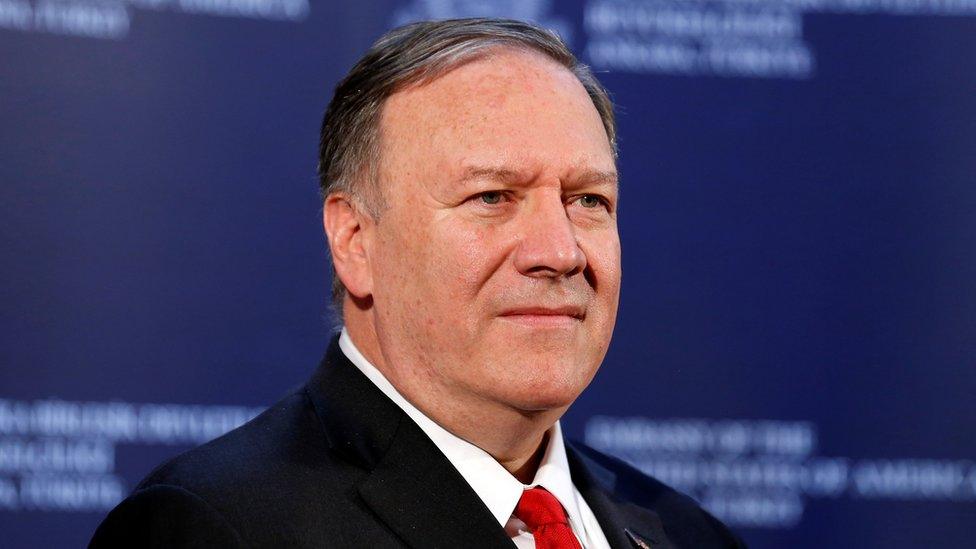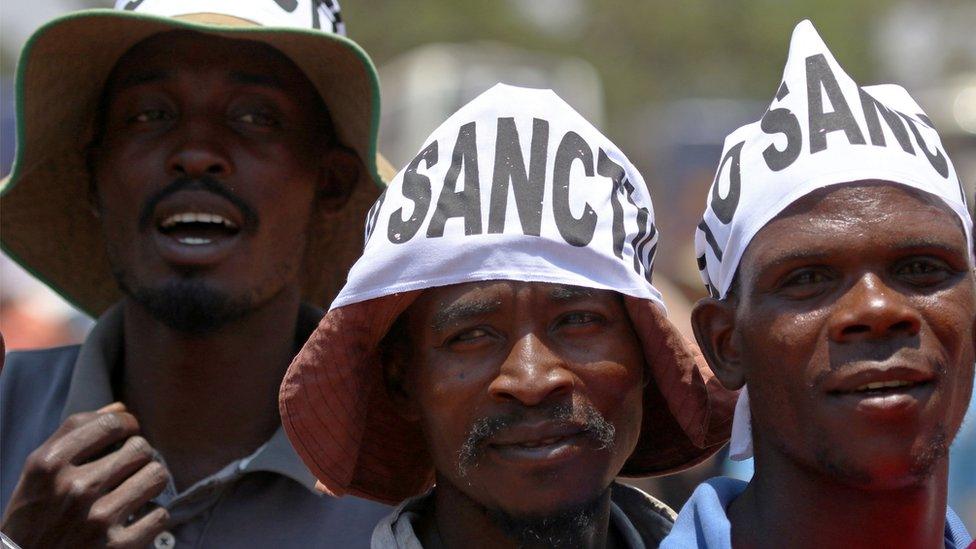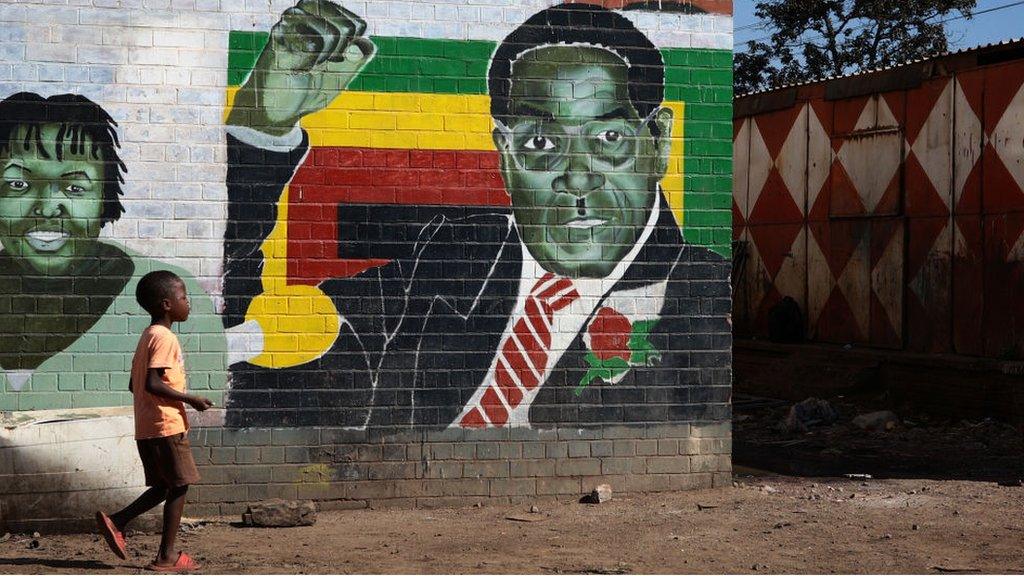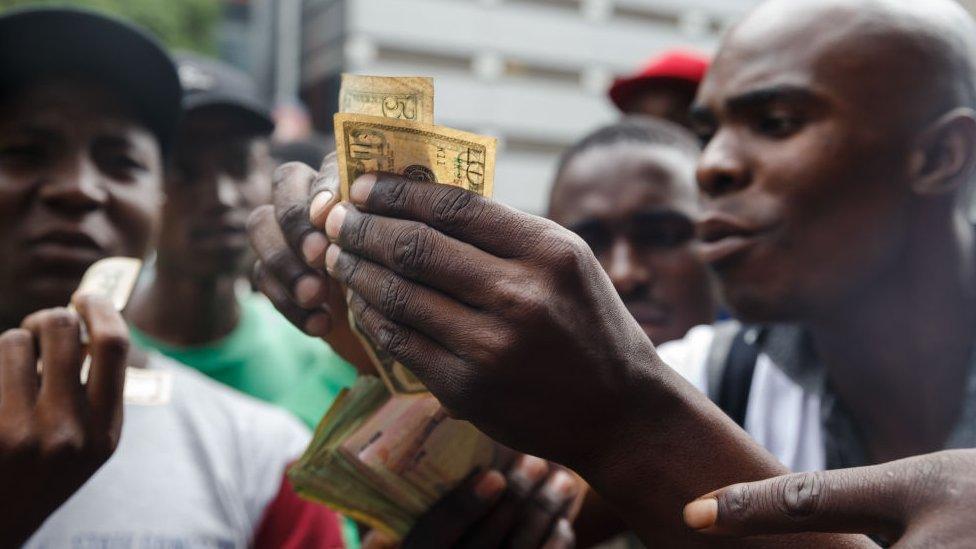US Zimbabwe sanctions: Security minister targeted
- Published

Secretary of State Mike Pompeo tweeted: "State-sanctioned violence in Zimbabwe must end now"
The US has imposed sanctions on Zimbabwe's state security minister amid human rights concerns.
Owen Ncube would be denied entry to the US because of evidence he was involved in "gross violations of human rights", a state department statement, external said.
It called on Zimbabwe's government to "hold accountable officials responsible for human rights violations".
The announcement came the same day that thousands marched in Zimbabwe against US and EU sanctions.
Both the US and EU say the sanctions have been imposed on individuals and companies and have no impact on the economy.
"State-sanctioned violence creates a culture of impunity for human rights abusers," the state department said.
Allow X content?
This article contains content provided by X. We ask for your permission before anything is loaded, as they may be using cookies and other technologies. You may want to read X’s cookie policy, external and privacy policy, external before accepting. To view this content choose ‘accept and continue’.

Zimbabwe's government made Friday a public holiday and provided buses for anti-sanctions marchers.
President Emmerson Mnangagwa reportedly told crowds the sanctions are "neither smart nor targeted".
"Their impact on our daily lives is immeasurable and the consequences are dire," he added.
But critics argue the president is trying to distract people from a deep economic crisis that has sent inflation soaring and caused incomes to plummet.
Fewer people than expected turned up to the main protest, with only 15-20,000 people in a stadium with a capacity of 60,000.
- Published25 October 2019

- Published25 August 2019

- Published18 August 2019
